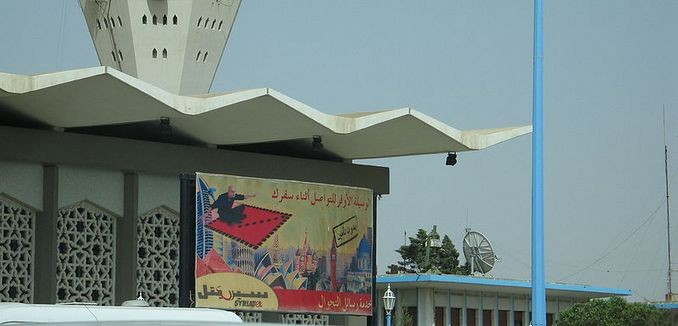Unconfirmed reports from Syrian rebels indicate that they may have successfully struck an Iranian airplane that was attempting to land at the Damascus airport and deliver arms to the Bashar al-Assad regime.
Reuters recently reported that Iran has “significantly stepped up” military assistance to Syrian army. The main weapons routes run through Iraq, and in fact last week Secretary of State John Kerry expressed frustration to Iraqi Prime Minister Nouri Maliki over the shipments. Iranian planes bound for Syria routinely land in Iraq, but since the summer of 2012 only two of the planes have been inspected as a result of American pressure.
Iraqi calculations are being driven by sectarian dynamics. In many ways the conflict has long been a straightforward sectarian proxy war between regional actors, with Sunni states supporting the opposition against the regime, which is in turn backed by Shiite Iran and its proxies. Maliki is a Shiite, but his tolerance of Iranian weapons shipments to Assad has been driven less out of loyalty to the Shiite side and more out of fears that — if the Sunnis currently battling Assad win — Iraq will be next:
Many officials here fear that a growing Iraqi Sunni protest movement that has found inspiration from the uprising next door could quickly turn into all-out revolt in regions that formed the heart of the Sunni insurgency over the past decade…Maliki, though a Shiite often aligned with Iran, is no fan of Syria’s embattled president. Maliki believes Assad helped fuel Iraq’s sectarian war by permitting weapons and fighters to stream across the border in the past decade. But analysts and officials say Iraq’s premier has shown a growing willingness to turn a blind eye to Iran’s aid for Assad because he feels increasingly threatened by the prospect of a rebel victory in Damascus.
“This is drawing the gulf states back into this part of the Middle East in a way they haven’t been since the Gulf War, and it’s drawing them in a way that is deeply sectarian,” said Tamara Cofman Wittes, director of the Saban Center for Middle East Policy at the Brookings Institution in Washington and a former senior State Department official. “For Iraq’s Sunnis, this is an opportunity to get patronage or support, but it’s in a context of increasingly fierce sectarian polarization in the Arab world, and that’s quite serious.”
Iran and Hezbollah have made substantial progress in developing a network of militias inside Syria that will promote their interests in the aftermath of the regime being toppled. The weapons deliveries are partly aimed at bolstering the regime, and partly at preparing for the day after its demise.
An Iraqi campaign to crack down on Iranian weapons shipments to Syria would slow but not stop the deliveries. In recent months, Tehran has also developed smuggling routes through Turkey and Lebanon.
[Photo: Danij84 / Wiki Commons]




